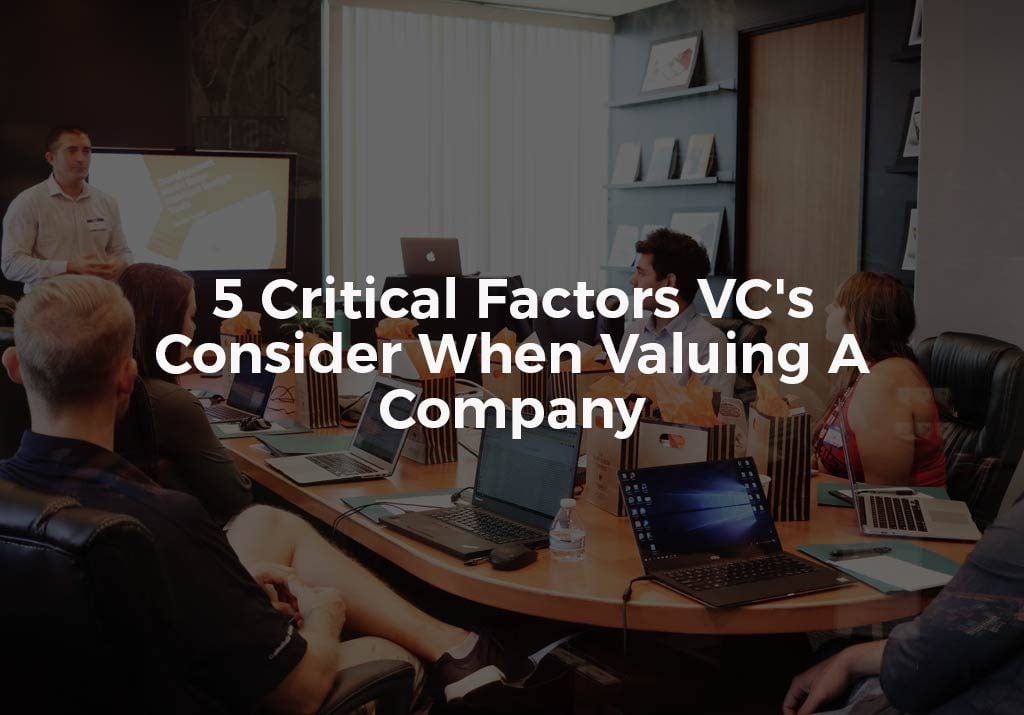Finding a VC firm that will give you the capital needed to take your company to the next level is a difficult process.Rejection is frustrating, and even worse when you don’t know why VC’s aren’t valuing your company as highly as you do.
There’s no perfect formula for predicting a startup’s success, but there are several critical factors that VC’s consider when valuing a company.
Proprietary technology (IP) developed by the company
One of the first things that VC’s will consider when valuing a company is the amount of proprietary technology that the company has developed or owns.
If a company owns valuable intellectual property, this gives them a competitive advantage, and they could be acquired by a larger company seeking their solution.
However, if a company does not have any proprietary technology, they run the risk of being copied by a competitor or a future player in the market, which could negatively impact their valuation.
Market Opportunity
Another key factor that VC’s weigh when valuing a startup is the market opportunity for the start-up’s business.
First, the VC firm will estimate the market size for that start-up’s offering. After that, the firm will look at how much growth the startup has achieved so far and predict how much more market share the startup can acquire.
If a start-up has a lot of untapped market share, it will be considered more valuable to a venture capital firm.
On the other hand, if the business is close to exhausting its market opportunity, the VC firm will be less interested in investing.
Past Success and Experience of Founders
Like most things in life, VC firms value experience. Start-ups that have founders with a proven track record will be considered more valuable than companies with inexperienced leadership.
Experience isn’t everything, but experienced leaders will be less likely to make the same mistakes that inexperienced professionals might make when growing a business for the first time.
Thus, an experienced leadership team with a successful past can mitigate a VC firm’s anxieties and result in a higher valuation.
Initial Traction (Revenue, MRR, Users, Partnerships)
There is a ton of uncertainty that goes along with predicting a start-up’s future. Thus, when a start-up has any level of traction, it will have a higher valuation than one without any demonstrated success.
A VC firm will consider multiple things when looking into a start-up’s track record.
For example, a VC firm will analyze the start-up’s Monthly (MRR) and Annual Recurring Revenue (ARR). This will help them determine how quickly a startup is growing.
The firm will also look at how many users the start-up currently has using their solution and look into partnerships that the company has secured.
As a whole, these factors help a VC firm measure a company’s traction and influence the valuation that the VC firm gives to a company.
Valuation of Comparable Companies
While your company may offer a unique solution or software, there is a good chance that there are companies with slightly different offerings already available on the market or ones that have existed in the past.
In order to help value your start-up, the venture capital firm will look
at the valuations and success of comparable companies.
If similar companies have a low valuation or have failed in the past, this does not necessarily mean that your company is doomed. However, your company should differentiate itself from comparable ones.
For example, your company should offer a truly unique solution or you should demonstrate why the market is a better fit for your company now than it was at the time of a failed comparable company.
In Conclusion
No VC firm can correctly predict the future of every company seeking capital. However, these are a few factors that VC firms weigh when deciding whether they should invest in a company.
If you keep these factors in mind when building your next business, you will increase the chance that you gain the backing of a venture capital firm.
If you are interested in protecting your company’s intellectual property, click here to schedule a free consultation.



